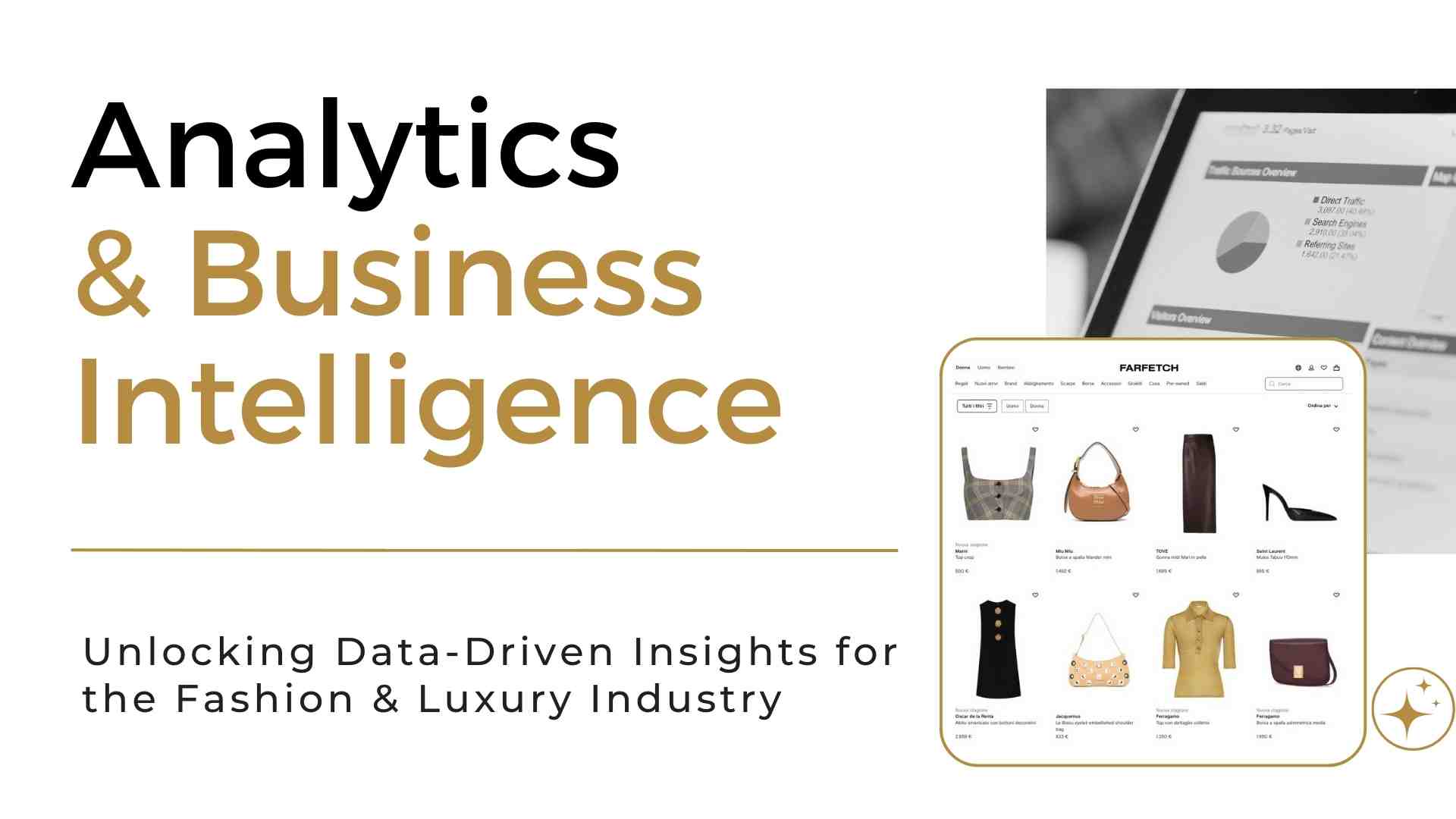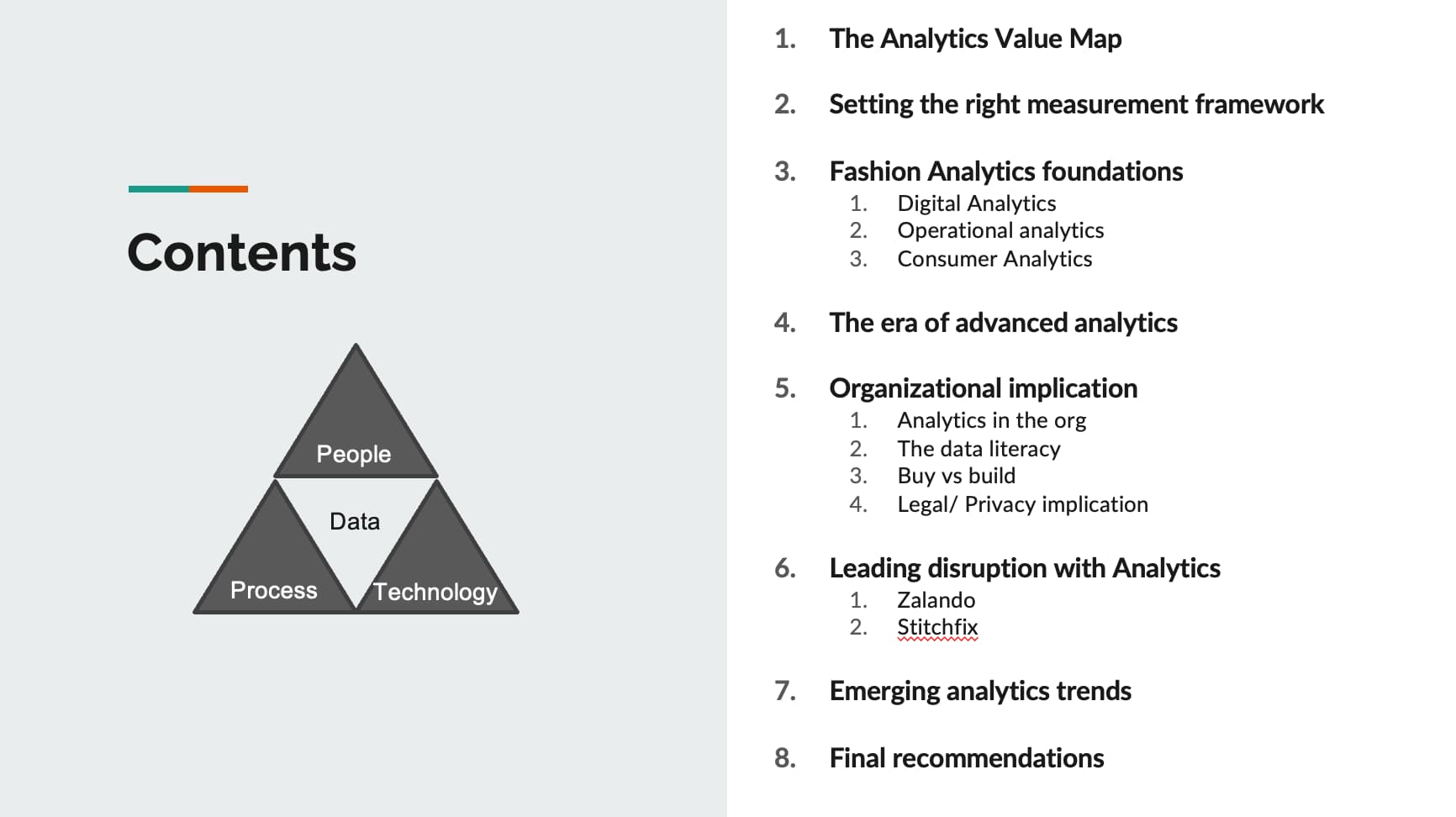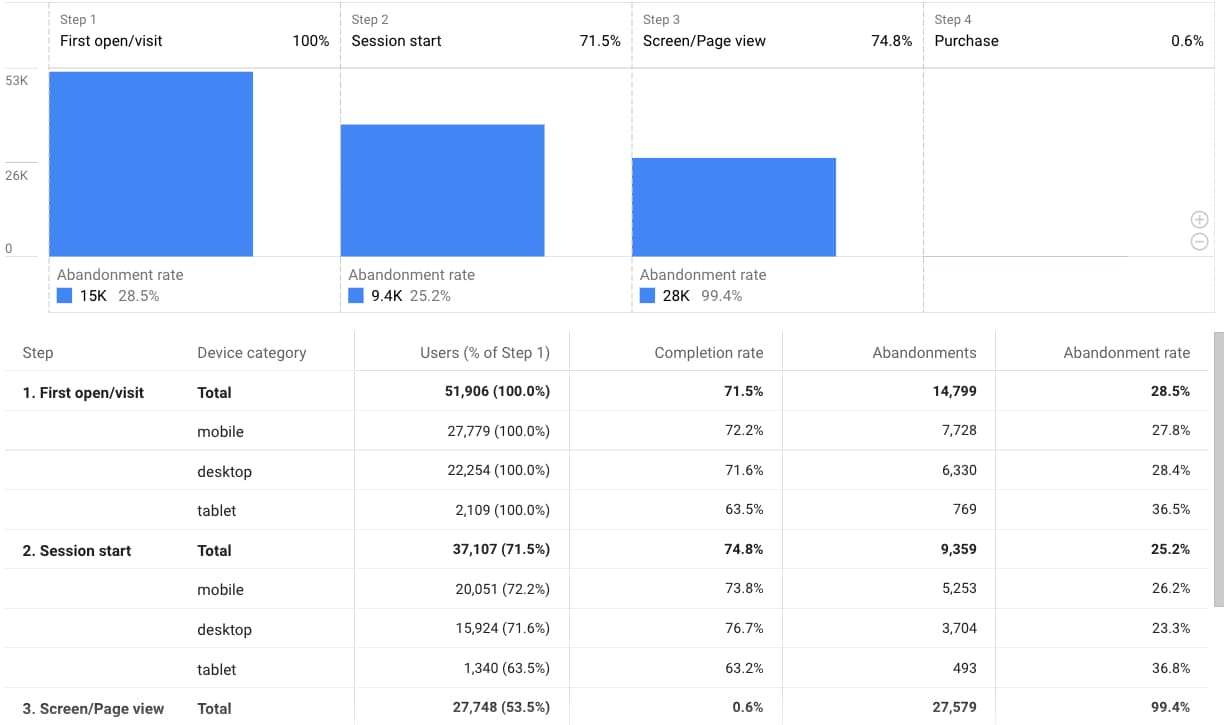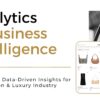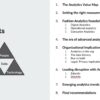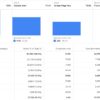Description
The fashion industry is one of the most data-rich industries in the world. With billions of dollars in sales and millions of customers, there is a wealth of data available to help businesses make better decisions.
Fashion Analytics is the process of collecting, analyzing, and interpreting data to gain insights into the fashion industry. This data can be used to track trends, understand customer behaviour, optimize supply chains, and make better marketing decisions.
In this course you’ll acquire an understanding of KPIs, Processes, Organisation and Tools used by world-class fashion companies with Filippo Chiari Director of Insights at VF Corporation.
With extensive experience in a prominent fashion group spanning sportswear to trendy brands, Filippo will provide the course participants with essential working knowledge immediately applicable to work.
Goals of the course:
- Learn the essential KPIs used in the fashion industry
- Learn different KPIs for different functions: logistics, customer service, ecommerce, digital marketing and others;
- Understand how to organize the Business Intelligence function;
- Understand how to convert data into actionable knowledge;
- Understand how analytics and Business Intelligence are evolving with AI capabilities and the role of Predictive Analytics.
Course Description
The Fashion Analytics course offers a comprehensive exploration of the KPIs used by fashion companies to monitor the performance of digital channels and you will learn how to use some of the analytical tools used by fashion companies to analyse the performance of digital marketing campaigns.
We will also look at the latest AI platforms used for predictive conversion analytics. In this course, students will delve into the world of fashion analytics, learning how to leverage data to make informed decisions, identify trends, optimize marketing strategies, and drive business growth.
By combining the principles of data analysis with the unique dynamics of the fashion industry, this course aims to equip students with the skills and knowledge to excel in the rapidly evolving fashion landscape.
Course Content:
Introduction to Fashion Analytics
- Understanding the importance of data-driven decision-making in the fashion industry
- Overview of key analytics techniques and tools used in the field
- Exploring the impact of fashion analytics on business performance
Data Collection and Management in Fashion
- Techniques for collecting and organising relevant fashion data
- Best practices for data management and quality assurance
- Ethical considerations in handling fashion-related data
Exploratory Data Analysis for Fashion
- Introduction to statistical concepts and techniques for analyzing fashion data
- Uncovering patterns, trends, and outliers in fashion datasets
- Visualizing and communicating data insights effectively
Predictive Analytics in Fashion
- Introduction to predictive modeling and forecasting techniques
- Applying machine learning algorithms to predict fashion trends and consumer behavior
- Evaluating model performance and accuracy in the fashion context
Customer Segmentation and Personalization
- Understanding the value of customer segmentation in the fashion industry
- Using clustering and segmentation techniques to identify target audiences
- Implementing personalized marketing strategies based on customer preferences
Social Media Analytics for Fashion
- Leveraging social media data to understand consumer sentiment and behavior
- Analyzing social media trends and influencers in the fashion space
- Utilizing social media analytics for brand positioning and engagement
Retail Analytics and Supply Chain Optimization
- Optimizing inventory management through demand forecasting and sales analysis
- Analyzing customer buying patterns and preferences to enhance merchandising strategies
- Applying analytics to streamline supply chain operations and logistics
Case Studies and Industry Applications
- Examining real-world examples of successful fashion analytics implementation
- Analyzing case studies from leading fashion brands and retailers
- Identifying emerging trends and opportunities in the fashion analytics field
Ethical Considerations and Privacy in Fashion Analytics
- Understanding the ethical challenges associated with fashion analytics
- Privacy regulations and compliance in data collection and analysis
- Balancing data-driven insights with consumer trust and privacy concerns
Future Trends in Fashion Analytics
- Exploring the evolving landscape of fashion analytics and emerging technologies
- Predicting the impact of artificial intelligence, machine learning, and big data in fashion
- Opportunities and challenges for fashion analytics professionals in the future
The Fashion Analytics course combines theoretical knowledge with practical applications, providing students with hands-on experience in data analysis tools and techniques specific to the fashion industry. By the end of this course, students will have the skills and confidence to analyze fashion data, interpret insights, and apply data-driven strategies to excel in the ever-changing world of fashion.
Topics covered in the course:
- Analytics and Business Intelligence
- Key Performance Indicators (KPIs) del settore fashion
- Google Analytics 4
- Predictive analytics and customer insights
- Artificial Intelligence in Analytics
- Organisation of Analytics teams
Key Benefits
- The course is designed by fashion and luxury professionals to meet the real needs of fashion and luxury companies
- The course is live via online meeting with possibility of viewing the lesson also on-demand for 12 months;
- Participants can engage with the teachers and our community during the course and after;
Teacher:
The faculty is made of some of the most qualified and experienced professionals in digital fashion & luxury
Filippo Chiari
Senior Director Analytics at VF Corp
15+ years of experience in managing Digital, Data & Insights practices, setting up disruptive capabilities for Global leading Fashion corporations (VF Corp, Kering, TODS Group)
Sets Data vision and strategy, working with C level to create data literate organizations from the top down, designing and embedding a cohesive, joined-up approach to data management across organizations.
Build Data & Analytics functions, continuously developing internal capability; sets team objective, structure engagement framework to optimize performance and Analytics adoption, across functions.
Implement future proof data portfolios and programs that deliver business impact, identifying and prioritizing initiatives that align with business objectives.
Methodology:
On-demand lesson Live Virtual Classrooms in the following dates:
- Wednesday July 17th from 5:00 to 7:00 PM GMT+1 (Rome time)
Lesson are recorded and available to rewatch at anytime. The partecipation at the live lesson is strongly recommended for ensuring the best learning experience.
